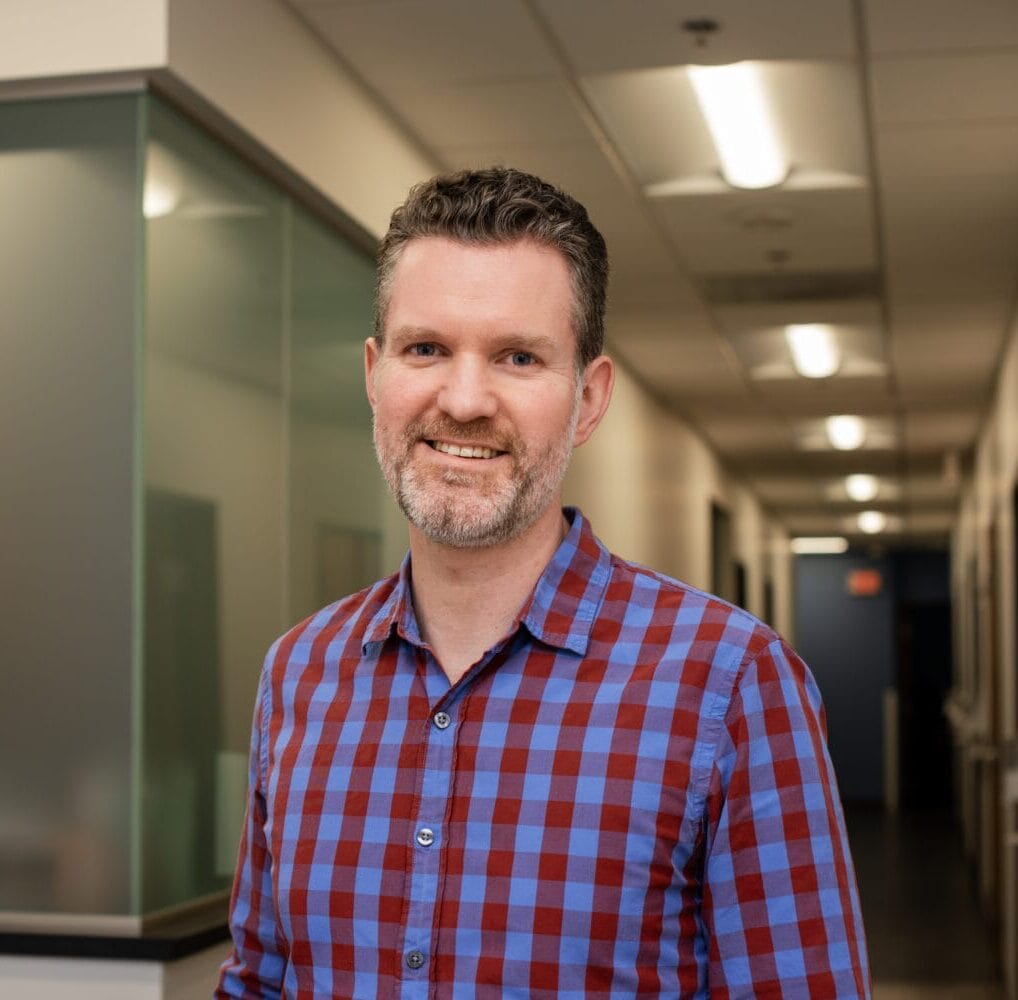WesternU learns the healing power of forgiveness
Patrick Chamusso battled apartheid in South Africa, survived imprisonment and torture, befriended Nelson Mandela, and learned to forgive his tormentors.
He shared his extraordinary story while visiting Western University of Health Sciences’ Pomona, Calif. campus Feb. 13, 2014. He took a tour and had lunch with WesternU Founding President Philip Pumerantz, PhD, at the invitation of College of Osteopathic Medicine of the Pacific (COMP) graduate Habib Sadeghi, DO ’00.
Chamusso was involved in fighting apartheid in South Africa. He was convicted of terrorism, high treason and possession of false passports, and was sentenced to 24 years in prison, where he met Nelson Mandela.
“Nelson Mandela taught me about forgiveness,” Chamusso said. “When I went to prison, my aim was to go out and pay revenge to everyone who did bad to us. Nelson said our aim is to forgive. He taught us to forgive. When you don’t forgive the person who did wrong to you, you hold a grudge, and it kills you before your time.”
Chamusso and Sadeghi met through actor Tim Robbins, who appeared in the 2006 feature film about Chamusso’s life, “Catch a Fire.”
Dr. Pumerantz wrote a letter to campus and to WesternU alumni in the wake of Mandela’s death in December 2013. Find it here:
http://www.westernu.edu/university/university-about/university-benchmarks/benchmarks-of-value-december-6-2013/
Dr. Sadeghi was moved by the President’s message and invited Chamusso to visit his alma mater.
“Mr. Mandela was and he is still a great man, because he taught us to bring the whole continent together,” Chamusso said. “Mr. Mandela’s idea is to end all those wars and come together as one.”
Through the years, Chamusso has come face to face with some of the men who tortured him in prison. But he did not seek revenge. One of these men was sitting in a park drinking wine. Chamusso knew he could walk up to the man and break his neck.
“My heart said no. What am I going to gain by breaking his neck?” he said. “If I do something like that, his children will come to my children, then my children will go to his children, and they will continue fighting, and it will never end. I saw him twice, but I never touched him.”
During the Truth and Reconciliation Commission hearings following the abolition of apartheid, Chamusso was asked if he wanted compensation for his ordeal, or for those who tortured him to go to prison.
“I don’t need any money,” he said. “I just need to forgive you and you also need to get over it. He mustn’t go to prison. I don’t want him to compensate me with anything. Just leave him like that. For me now, I forgive them. I sleep very well during the night.
“Mr. Mandela used to say, evil deeds don’t come from the skin, it comes from the heart. You have to clean your heart, you have to be open and you have to forgive,” Chamusso added. “Forgiveness is the best medicine of them all. If you cannot forgive, you are not a human being.”
“I think you’re one of the strongest people I’ve ever met,” Pumerantz said.
“You are the strongest person,” Chamusso replied. “To create a big institution like this, it’s amazing. You are planting the seed that is bearing fruit.”
Chamusso said he is inspired by the work at WesternU, where alumni return to campus and help those who follow them. He would like for that to happen at the orphanage he built.
After serving 10 years in prison, he was amnestied in 1991 along with other political prisoners. He returned home to a rural area of northeast South Africa, built a house and adopted twins who were HIV-positive. They died on the same day at age 7. He and his wife expanded their land and added houses, and they now care for 251 orphaned children, plus their three children by birth. They take in children who were abandoned or orphaned by parents who died from AIDS or cancer.
He and his wife named the orphanage Two Sisters, for those first two orphans they embraced.
One problem he faces is helping these children once they turn 18. He wants them to go to college, find a good job and then return to help others at the orphanage. But often they go to the city to look for work, not to study, and they do not return.
“What I’m looking for is if I could get anybody to help me educate these children,” Chamusso said. “They want to study music. Some want to be doctors. Some want to be engineers. I don’t have the facilities myself.”
Dr. Pumerantz and other WesternU officials said they will explore possible ways to help, including fundraising, creating a pipeline for these children to get college degrees, and sending volunteer assistance to the orphanage.
Chamusso said his children watched the movie “Catch a Fire” and asked why he didn’t want to hurt the men who tortured him. He explained to them why he fought against apartheid and how much had changed in his lifetime.
When he was 13 years old, he was arrested for entering a café through the “whites only” door. He was sold to a farmer for manual labor without the authorities consulting his parents. A lot has changed, but it took sacrifice.
“You can study at the same university with them,” Chamusso said. “We will not drive other people away. What we wanted is to stay together as one.”



